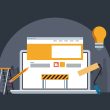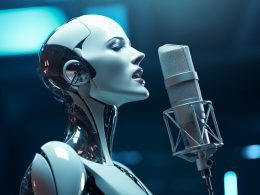ntroduction: Why AI Agent Frameworks Are Defining the Future of Software Development
The year 2025 marks a significant shift in the world of software development and enterprise automation. No longer confined to static scripts or singular tasks, modern systems are powered by AI agents that are capable of dynamic decision-making, memory retention, multi-tool integration, and even inter-agent collaboration.
At the foundation of this revolution are AI Agent Frameworks – robust libraries, toolkits, and orchestration environments that allow developers to build agents powered by Large Language Models (LLMs). These frameworks provide everything from reasoning engines and memory layers to tool integrations and multi-agent communication protocols.
AI Agent Frameworks are quickly becoming essential for building intelligent enterprise solutions, productivity co-pilots, task automation bots, and much more. Businesses investing in these frameworks today are gaining a strategic edge in automating knowledge work, streamlining development, and enhancing customer experience.
🧰 What Are AI Agent Frameworks?
AI Agent Frameworks are software environments designed to create and manage intelligent agents that can:
- Interpret complex instructions
- Access and interact with tools and APIs
- Maintain long-term memory and contextual awareness
- Collaborate with other agents
- Reason through multi-step tasks autonomously
These frameworks abstract the complexities of LLM orchestration, tool use, and system integration, empowering developers to focus on use cases rather than infrastructure.
AI agents built with these frameworks are already transforming industries including:
- FinTech: Automated investment assistants and fraud detection agents
- HealthTech: AI agents for diagnostics and medical record summarization
- Retail: Conversational agents managing customer queries and product discovery
- SaaS: Intelligent co-pilots for user onboarding and internal automation
🏠 Key Components of Modern AI Agent Frameworks
An effective AI agent framework includes the following architectural layers:
1. LLM Backbone
LLMs provide natural language understanding and generation capabilities.
- GPT-4 / GPT-5
- Claude 3.5
- Google Gemini 1.5
- Mistral, LLaMA (for open-source deployments)
2. Reasoning & Planning Module
Frameworks implement planning logic like:
- ReAct (Reasoning + Acting)
- Chain of Thought (CoT)
- Tree of Thought
- Finite state machines or recursive task planners
3. Tool Integration Layer
Tools extend agent functionality:
- API connectors (CRM, ERP, cloud services)
- File readers, browsers, search engines
- Calculators, data visualizers, code runners
4. Memory Management
Memory is critical for context retention and personalization:
- Vector databases (Pinecone, ChromaDB, Weaviate)
- LangChain Memory, Zep, and custom memory stores
5. Agent Orchestration Engine
Manages task distribution, inter-agent communication, and execution flow:
- CrewAI
- LangGraph
- AutoGen’s group chat interface
6. Monitoring & Debugging
Reliable agent behavior requires observability:
- LangSmith
- PromptLayer
- Weights & Biases for experiment tracking
🏆 Top AI Agent Frameworks in 2025
✨ 1. LangChain
- Use Cases: Chatbots, retrieval systems, workflows
- Strengths: Modular design, open-source, active ecosystem
✨ 2. AutoGen by Microsoft
- Use Cases: Human-agent and agent-agent conversation, research automation
- Strengths: Multi-agent conversation loops, integration with OpenAI tools
✨ 3. MetaGPT
- Use Cases: Software engineering assistants, product team simulation
- Strengths: Simulates PM, Dev, and QA roles
✨ 4. CrewAI
- Use Cases: Team collaboration, role delegation, content workflows
- Strengths: Role-driven agent assignment and chaining
✨ 5. OpenDevin
- Use Cases: AI-assisted coding environments
- Strengths: Developer-native tooling, open-source IDE for agents
✨ 6. SuperAGI
- Use Cases: Internal automation, multi-tasking agents
- Strengths: UI dashboard, local agent runner, plugin support
Each framework offers unique strengths and serves different business needs. Choosing the right one is essential for building scalable AI systems.
🤝 Framework Integrations: What Makes an Agent Truly Smart
To maximize the value of AI agent frameworks, teams integrate them with various tools and systems:
- APIs & Plugins: REST, GraphQL, Zapier, OpenAPI
- Databases: Postgres, MongoDB, vector DBs for semantic search
- Document Stores: PDFs, Notion, Confluence, SharePoint
- Deployment Environments: Docker, AWS Lambda, Vertex AI, Azure Functions
These integrations transform agents from passive responders into intelligent action takers.
📊 Choosing the Right AI Agent Framework
Here’s a strategic guide for selecting the right framework:
| Need | Recommended Framework |
|---|---|
| RAG chatbot or document assistant | LangChain + Pinecone |
| Developer automation agent | MetaGPT + GPT-4-turbo |
| Multi-agent collaboration | AutoGen + CrewAI |
| Custom workflow orchestration | LangGraph + OpenDevin |
| Scalable team-based agents | CrewAI + ChromaDB |
Always consider:
- API/tool availability
- Community support
- Hosting flexibility
- Privacy requirements
🔄 Trends Redefining AI Agent Frameworks in 2025
- ✨ Multi-agent coordination is now essential for complex workflows
- 🔧 Composable agents allow quick reconfiguration and domain adaptation
- ⚖️ Open-source alternatives to GPT APIs are growing (Mistral, Mixtral)
- ⚡️ LLMOps tools like LangSmith improve agent traceability and observability
- 🤔 Cognitive architectures mix symbolic logic with LLMs for better reasoning
🔗 Final Thoughts
AI Agent Frameworks are unlocking a new frontier in intelligent automation. From scalable backend workflows to real-time customer co-pilots, the ability to create autonomous, tool-using, reasoning agents is rapidly changing software development.
For enterprise product teams, tech leaders, and developers, staying current with these frameworks is key to building AI-first platforms that deliver real business value.
📍 Want to go deeper into the top frameworks shaping the future? Read Azilen’s full technical breakdown on AI Agent Frameworks and start shaping your 2025 AI strategy.
Frequently Asked Questions (FAQs)
1. What are AI agent frameworks?
AI agent frameworks are development environments and libraries that help build intelligent, autonomous agents powered by large language models (LLMs). These frameworks include features like reasoning, memory, tool integration, and task orchestration.
2. Why are AI agent frameworks important in 2025?
In 2025, AI agent frameworks are crucial for building scalable, context-aware, and tool-using agents that can automate business workflows, handle multi-step tasks, and collaborate like virtual team members across industries.
3. Which are the top AI agent frameworks in 2025?
The leading AI agent frameworks in 2025 include LangChain, AutoGen, MetaGPT, CrewAI, OpenDevin, and SuperAGI. Each caters to specific use cases such as document processing, software automation, or multi-agent collaboration.
4. How do AI agent frameworks differ from traditional chatbot frameworks?
Unlike traditional chatbots, AI agent frameworks enable autonomous decision-making, tool usage, memory retention, and reasoning. They allow agents to act proactively, use APIs, and perform complex, multi-step workflows.
5. What tools are commonly integrated with AI agent frameworks?
Common tools include LLMs (like GPT-4 or Claude), vector databases (e.g., Pinecone, ChromaDB), plugin APIs, RAG systems, and orchestration engines like LangGraph or CrewAI for running multi-agent systems.
6. How do I choose the right AI agent framework for my project?
Choose an AI agent framework based on your use case (e.g., automation, product development, research), desired autonomy level, LLM integration needs, memory requirements, and deployment environment.











